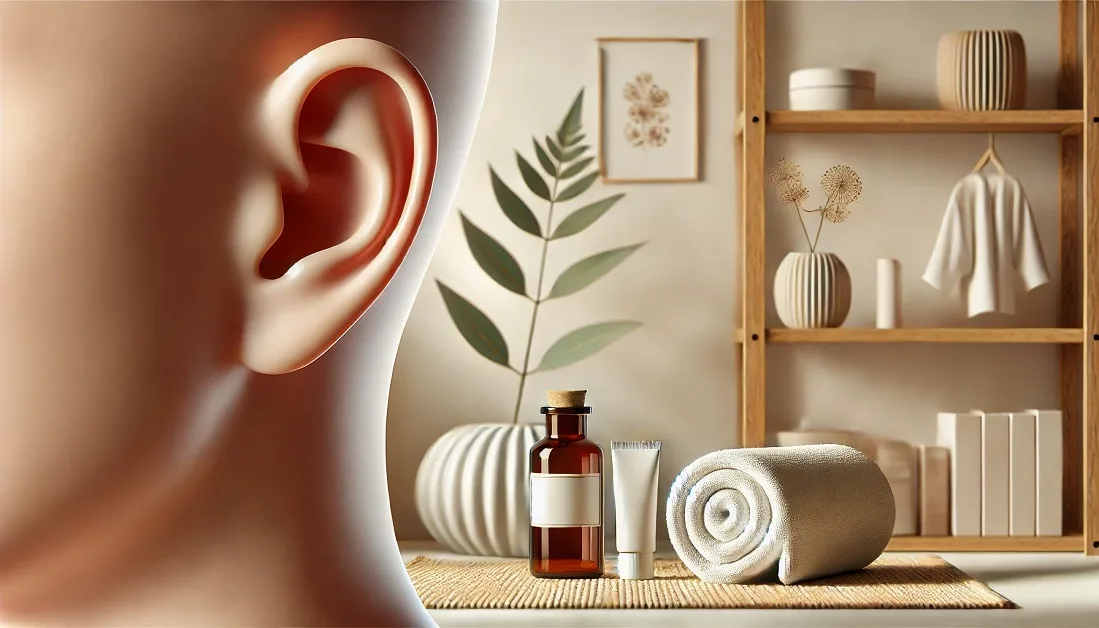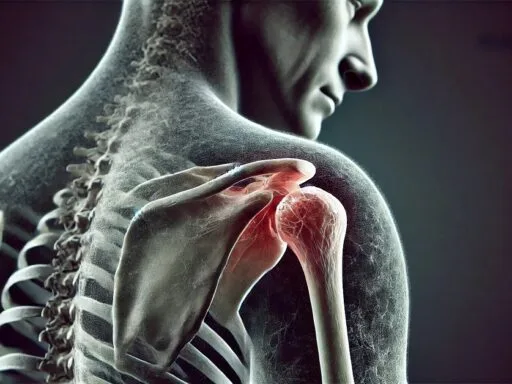Jump to Section
Introduction – The Symptom Nobody Talks About
Menopause is a major life transition, yet many of its symptoms still go unspoken. Everyone hears about hot flashes, mood swings, and night sweats. But one odd, frustrating issue often slips through the cracks—itchy ears in menopause.
Yes, ears. It might sound strange, even trivial, but for many women, this is a real and persistent discomfort. The sensation often starts as a tickle, then escalates into dryness, irritation, or an uncontrollable urge to scratch. It’s one of those uncommon signs that’s easy to dismiss, yet it can interfere with daily life.
What makes it worse? Silence. No one warns you about it. You might assume it’s an allergy, infection, or just your imagination. But in reality, itchy ears in menopause are tied to hormonal changes that affect your entire body—including your skin and ear canal.
In this article, we break the silence and dive into this overlooked symptom to support better menopause health and awareness.
Why Do Ears Itch During Menopause?
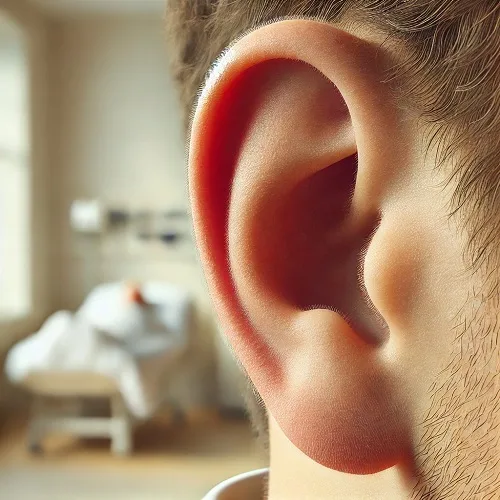
The answer starts with hormonal imbalance. During menopause, your estrogen levels begin to drop. This shift affects much more than your reproductive system. Estrogen plays a key role in keeping skin hydrated and elastic. As levels decline, the skin—including the delicate lining of your ear canal—becomes dry, thin, and more sensitive.
This dryness can trigger irritation, flaking, and a persistent itchy sensation inside the ears. The skin loses its natural moisture barrier, making it more reactive to even mild environmental triggers.
On top of that, fluctuating hormones can confuse your immune system. As your body adjusts to these changes, you may become more sensitive to things that never bothered you before—like shampoo, soap, earrings, or dust. This is why many women suddenly experience increased menopause and allergies during this stage of life.
It’s also important to understand that the ears are not isolated from the rest of your skin. They’re part of the same system being affected by the decline in estrogen. If you’ve noticed skin dryness on your face, arms, or legs, your ears are likely experiencing the same.
So, why does it happen? Because itchy ears in menopause are a direct result of the body reacting to internal hormonal shifts and external irritants in a new, often unpredictable way. And while it might seem like a small issue, it’s a signal your body is changing—and it deserves attention.
The Link Between Hormonal Changes and Skin Health
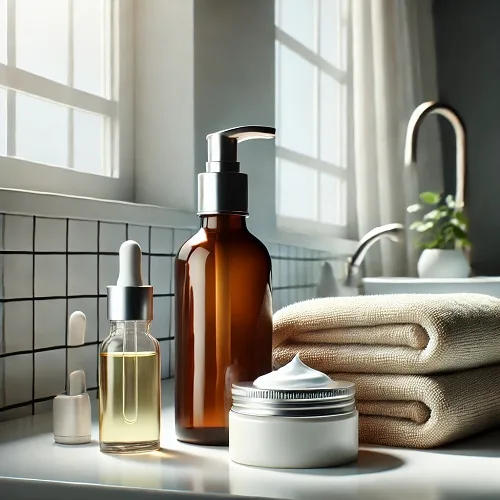
One of the most noticeable shifts during menopause is what happens to your skin. As estrogen drops, your body produces less collagen, oil, and hyaluronic acid—all of which are essential for keeping skin firm, smooth, and moisturized. The result? Dry skin, thinning skin, and increased sensitivity, especially in delicate areas like the ears.
This explains why itchy ears in menopause become such a common but overlooked issue. The skin inside the ear canal is extremely thin and lacks the oil glands found in other parts of the body. When hormonal support declines, that already vulnerable area becomes even more prone to irritation and discomfort.
These changes aren’t just cosmetic. Menopause and skin changes can have real, daily impacts on how you feel. What used to be mild dryness can now feel like an ongoing itch or a burning sensation inside your ears. And because this isn’t talked about often, many women blame themselves or assume something more serious is going on.
The connection is clear: hormonal changes affect skin health across the board, and your ears are no exception. Understanding this link helps normalize the experience and encourages women to stop ignoring signs like itching or flaking in unexpected places. By recognizing that itchy ears in menopause are a symptom—not an anomaly—you can take more informed steps to care for your skin and feel more in control.
Other Common Yet Overlooked Symptoms

Itchy ears in menopause may seem unusual, but they’re part of a broader group of lesser-known menopause symptoms that many women experience but rarely connect to hormonal shifts.
Take itching, for example. It’s not just limited to the ears. Many women report feeling itchy skin on the neck, chest, back, or even the scalp. This widespread itchiness is caused by reduced estrogen, which affects the skin’s ability to retain moisture and regenerate.
Then there’s anxiety, often dismissed or misdiagnosed. Hormonal changes during menopause can directly impact brain chemistry, leading to unexpected feelings of unease or restlessness. This can be compounded by insomnia, another overlooked symptom that affects energy, focus, and overall well-being.
While more familiar issues like hot flashes, vaginal dryness, and mood swings are commonly discussed, symptoms like itchy ears in menopause often remain unspoken. But they’re just as valid. The problem isn’t that these symptoms are rare—it’s that they’re misunderstood or ignored.
Recognizing these patterns helps women see the full scope of what menopause can bring. It’s not just about the big symptoms—it’s the accumulation of smaller, persistent ones that impact quality of life. By understanding this broader context, women can take their experiences seriously and seek support without hesitation.
When Itchy Ears Could Mean Something More
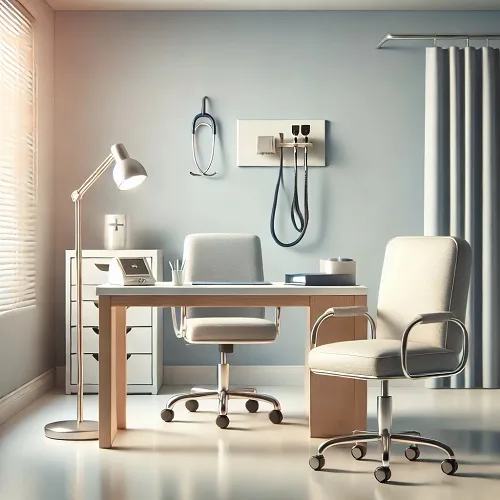
While itchy ears in menopause are usually linked to hormonal changes, they can sometimes signal something more serious. It’s important to know when the itch crosses the line from annoying to concerning.
For example, ear infections can cause itching along with pain, discharge, or a feeling of fullness. These aren’t caused by menopause but can occur more easily if dry, irritated skin cracks and becomes vulnerable to bacteria.
Eczema is another possibility. Menopause can trigger or worsen existing skin conditions, including eczema in or around the ears. This may present as redness, flaking, and severe itching. In some cases, women may also experience allergic reactions to new products, medications, or even metal in earrings—reactions made worse by already sensitive menopausal skin.
In rare situations, itchy ears in menopause could be tied to broader autoimmune issues or other menopause complications. If the itching is persistent, severe, or accompanied by other symptoms like dizziness, ringing in the ears, or swelling, it’s time to consult a healthcare provider.
Itching isn’t always harmless. While menopause often explains it, don’t ignore signs that point to a deeper issue. Being informed and proactive helps protect your health and gives you peace of mind.
Safe and Proven Remedies for Itchy Ears

If you’re dealing with itchy ears in menopause, relief is possible—and often simple. You don’t need expensive treatments or prescription drugs. In most cases, small, consistent changes can make a real difference.
Start with home remedies. A few drops of natural oils like olive oil or coconut oil can moisturize dry ear canals and reduce irritation. Just be sure to use a clean dropper and avoid inserting anything deep into the ear. Always apply oils externally or just inside the opening, not deep into the canal.
For more intense itching, over-the-counter anti-itch creams designed for sensitive skin can help—especially if you experience irritation around the ear rather than inside. Make sure the cream is fragrance-free and suitable for facial use.
Moisture is key. Since estrogen loss leads to dry skin, hydrating from the inside out also matters. Drink more water, use a humidifier in dry environments, and avoid long, hot showers that strip your skin of natural oils.
You might also benefit from ear drops made for dry ears. These are different from wax-removal drops. Look for products specifically labeled as lubricating or moisturizing drops.
Long-term menopausal relief often comes from broader lifestyle changes. A balanced diet, reduced caffeine, and consistent sleep can all support hormonal balance. Some women find that regular exercise and reducing stress also lessen symptoms, including ear itching.
Whatever method you choose, the goal is to soothe, protect, and prevent—not to mask the issue. With the right care, itchy ears in menopause can become manageable, or even disappear altogether.
RELATED POSTS
Stop Menopause Bloating: 5 Proven Solutions That Work
Centrum Menopause: Best Multivitamins for Smooth Transition
How to Reverse Thinning Hair After Menopause: Full Guide
Stop Vaginal Odor During Menopause – Here’s How!
Transform Your Health: 7-Day Menopause Diet Plan for Results
How to Prevent Itchy Ears in the Future

Preventing itchy ears in menopause starts with taking care of your skin and your hormones. Since dryness is the main trigger, focus on skin hydration. Use a gentle, hydrating cleanser and avoid over-washing your ears. Apply a light moisturizer around the outer ear if it tends to get dry.
Small diet changes also help. Foods rich in omega-3 fatty acids—like salmon, walnuts, and flaxseeds—can support skin health from within. Staying well-hydrated is just as important. Aim for at least eight glasses of water a day to keep your skin and mucous membranes from drying out.
For some women, hormone therapy may reduce multiple menopausal symptoms, including skin-related ones. This isn’t for everyone, so it’s best discussed with a healthcare provider.
Also, avoid irritants like heavily perfumed shampoos, metal earrings, or earbuds that trap moisture. A gentle approach to personal care is essential during this time.
With a consistent routine, itchy ears in menopause don’t have to be a recurring issue. Prevention is simple—once you know what to look for.
FAQs About Itchy Ears and Menopause
1. Is itchy ear a common menopause symptom?
Yes. Itchy ears in menopause are more common than people think. Hormonal changes, especially the drop in estrogen, can lead to menopause itching in various areas, including the ears.
2. Can hormone replacement therapy help with ear itching?
It can. Hormone therapy may improve overall skin moisture and reduce symptoms tied to hormonal imbalance, including itchy ears. Always consult your doctor before starting any treatment.
3. What’s the difference between itchy ears and an ear infection?
Itchy ears in menopause are usually caused by dryness, not infection. An ear infection often includes pain, swelling, or discharge—symptoms not typically linked to menopause.
4. Should I see a doctor for itchy ears during menopause?
Yes, especially if the itching is persistent, painful, or accompanied by other symptoms. This helps rule out underlying ear health issues like eczema or infection.
5. Why does menopause cause skin changes in the ears?
Lower estrogen levels lead to dry skin and thinning skin, making the ear canal more prone to irritation and itching.
6. Can stress make itchy ears worse?
Yes. Stress impacts hormone balance and can worsen menopause symptoms, including itchy skin and discomfort in sensitive areas.
7. Are itchy ears a sign of another health issue?
Sometimes. Persistent itchy ears could be related to autoimmune issues or chronic skin conditions like eczema. It’s worth checking with a professional.
8. What natural remedies work best for itchy ears?
Natural oils like olive or coconut oil can soothe dryness. Avoid inserting anything into the ear canal, and apply only around the outer ear.
9. Can menopause trigger allergies that affect the ears?
Yes. Menopause and allergies often go hand-in-hand due to increased sensitivity from hormonal changes.
10. Are there specific foods that help reduce ear itching?
Yes. Omega-3 rich foods and hydrating fruits and vegetables can support skin hydration and reduce itchy ear causes.
11. Can overuse of earbuds cause more irritation?
Absolutely. Wearing earbuds for long periods traps moisture and heat, which can worsen ear canal irritation, especially when skin is already dry.
12. Do antihistamines help with itchy ears in menopause?
Sometimes. If the itching is allergy-related, they may help. But they can also dry out the skin more, so use with caution.
13. What’s the safest skincare for menopause-related ear issues?
Choose fragrance-free, hypoallergenic products. The best skincare for menopause focuses on hydration and gentle ingredients.
14. How long does menopausal ear itching last?
It varies. For some, it’s occasional. For others, it may persist throughout menopause. Managing lifestyle changes helps reduce symptoms.
15. Can lack of sleep make ear itching worse?
Yes. Insomnia and poor sleep affect your skin’s ability to heal and hydrate, which can increase menopause itching.
16. Is it safe to use over-the-counter ear drops regularly?
Yes, if they’re labeled for dry ears. Avoid wax removal drops unless advised by a doctor.
17. How can I tell if my itchy ears are hormone-related?
If itching started with other menopause symptoms like hot flashes or mood swings, hormones are likely involved.
18. Can wearing earrings irritate ears more during menopause?
Yes. Metal sensitivity may increase with menopause complications. Switch to hypoallergenic earrings or remove them entirely.
19. Is menopause-related ear itching permanent?
Not usually. With good care and awareness, most women find relief and prevent recurrence.
20. What are the best ways to protect ear health during menopause?
Moisturize, stay hydrated, avoid irritants, and monitor changes. Support your overall ear health through routine checkups and self-care.
Final Thoughts – You’re Not Alone in This
If you’ve been silently dealing with itchy ears in menopause, know that you’re not imagining things—and you’re definitely not alone. This is a real symptom, tied to real hormonal changes, and it deserves recognition just like any other aspect of women’s health.
Too often, lesser-known symptoms are dismissed, leaving women without answers or support. But increasing menopause awareness means shedding light on every part of the experience, not just the well-known ones. Validating these symptoms empowers women to take control of their health and ask the right questions.
Your comfort matters. Whether it’s seeking support, trying gentle remedies, or simply understanding what your body is going through, the first step is knowing this: your experience is valid—and help is out there.
References
- National Institute on Aging (NIA) – What Is Menopause?
- American Academy of Dermatology (AAD) – Caring for your skin in Menopause
- The British Menopause Society & Women’s Health Concern 2020
- Johns Hopkins Medicine – Eczema and Skin Health
ALSO READ
How to Increase AMH Hormone Levels Naturally: Effective Tips
Clicking Sound While Breastfeeding: Why It Happens
Can a UTI Cause a Late Period? Full Guide
Can a Bladder Infection Affect Period? A Complete Guide
Castor Oil for Endometriosis: Proven Benefits & Uses

